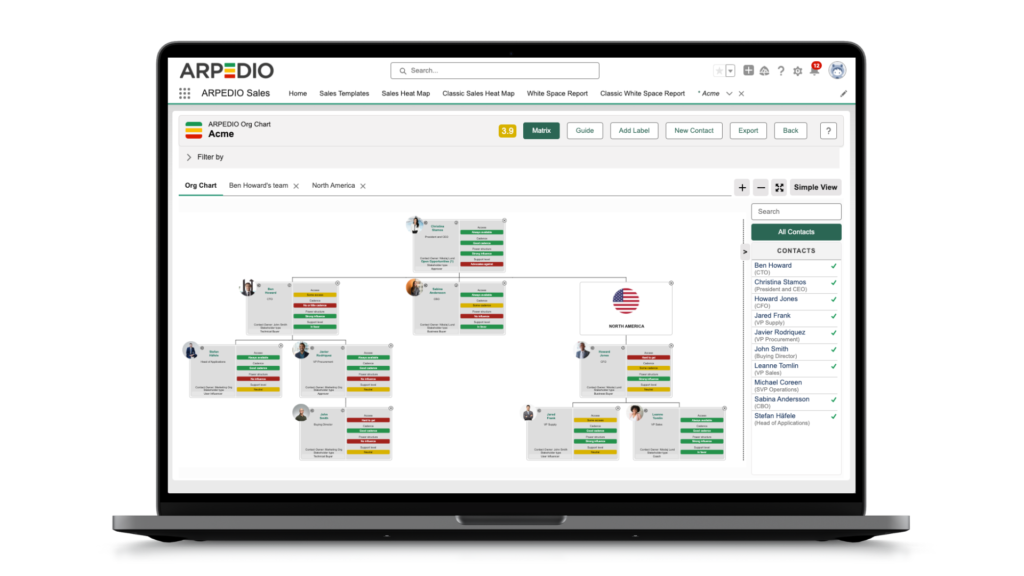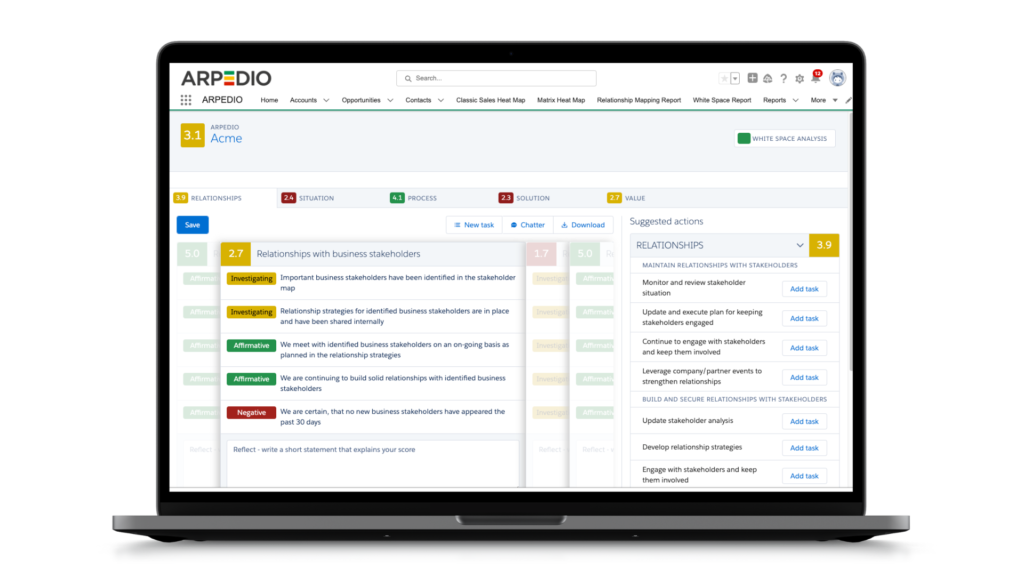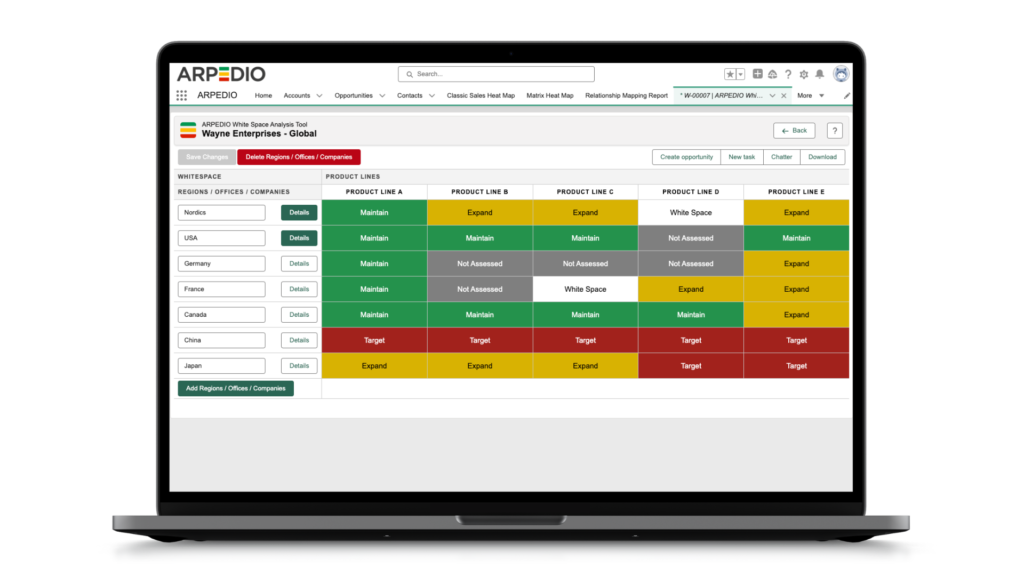In the intricate dance of business success, one partner often overlooked is account management. It’s the backbone that sustains client relationships, fosters loyalty, and ultimately drives growth. In this digital age where competition is fierce and customer expectations are soaring, the need for robust account management strategies has never been more pronounced.
Account management isn’t merely about maintaining existing relationships; it’s a proactive approach to understanding and fulfilling client needs. It involves a strategic blend of communication, problem-solving, and customization to ensure both client satisfaction and organizational prosperity.
Throughout this blog post, we’ll delve into the realm of account management strategies, exploring how businesses can leverage these techniques to not only retain clients but also to propel themselves toward long-term success. From segmentation to solution customization, we’ll uncover the keys to unlocking sustainable growth through effective account management. So, let’s embark on this journey to unravel the mysteries of client engagement and business evolution.
Understanding Account Management
At its core, account management encompasses the art of fostering fruitful relationships with clients. It’s about more than just managing accounts; it’s about understanding their needs, addressing their concerns, and ultimately becoming a trusted advisor in their journey towards success.
One crucial aspect of account management is the delicate balance between nurturing existing accounts and pursuing new ones. While acquiring new clients is vital for business growth, neglecting existing relationships can be detrimental. By focusing on nurturing existing accounts alongside acquiring new ones, businesses can establish a foundation of trust and loyalty that sets them apart in a competitive market landscape.
In today’s digital age, the landscape of account management is undergoing a profound transformation. With the advent of advanced technologies and data analytics, account managers have access to unprecedented insights into client behavior and preferences. This evolution has empowered businesses to deliver more personalized experiences, anticipate client needs, and drive engagement on a deeper level than ever before.
As we navigate this ever-changing landscape, it’s essential for businesses to adapt their account management strategies to meet the demands of the digital era. By embracing innovation, leveraging technology, and prioritizing client-centric approaches, businesses can position themselves for sustained success in the dynamic world of account management.
Key Components of Effective Account Management Strategies
Effective account management strategies are the cornerstone of building strong and lasting client relationships. By understanding the key components that drive success in account management, businesses can position themselves for sustainable growth and customer satisfaction.
Segmenting Clients for Success
One of the fundamental components of effective account management is segmenting clients based on their unique needs, behavior, and potential. By categorizing clients into distinct segments, businesses can tailor their approach to better address the specific challenges and opportunities presented by each group. Whether it’s high-value clients requiring personalized attention or emerging clients with untapped potential, segmentation allows account managers to allocate resources strategically and maximize the impact of their efforts.
Establishing Clear Communication Channels
Clear communication is essential for fostering trust and transparency in client relationships. Establishing clear communication channels and maintaining regular contact with clients ensures that expectations are aligned, concerns are addressed promptly, and opportunities for collaboration are maximized. Whether through email, phone calls, or face-to-face meetings, effective communication lays the foundation for productive partnerships and mutual success.
Setting Realistic Goals and Expectations
Setting realistic goals and expectations is paramount for building trust and accountability in client relationships. By collaboratively defining clear objectives and milestones, both clients and account managers can align their efforts towards shared outcomes. Additionally, setting realistic expectations helps manage client perceptions and minimizes the risk of disappointment or dissatisfaction. By fostering a culture of transparency and accountability, businesses can cultivate stronger and more resilient client relationships.
Leveraging Technology and Data Analytics
In today’s digital age, technology and data analytics have become indispensable tools for driving personalized interactions and optimizing account management efforts. By leveraging advanced CRM systems, analytics platforms, and automation tools, businesses can gain valuable insights into client behavior, preferences, and trends. This wealth of information enables account managers to deliver tailored solutions, anticipate client needs, and identify opportunities for upselling or cross-selling. By harnessing the power of technology and data analytics, businesses can unlock new levels of efficiency, effectiveness, and client satisfaction in their account management practices.
How to Build Strong Client Relationships
Establishing and nurturing strong client relationships is the cornerstone of successful account management. It goes beyond mere transactions; it’s about fostering trust, reliability, and mutual respect.
Emphasizing Trust and Reliability
Trust is the bedrock upon which enduring client relationships are built. Clients need to feel confident that their account manager has their best interests at heart and can deliver on promises consistently. By demonstrating reliability, integrity, and transparency in every interaction, account managers can cultivate trust and instill confidence in their clients.
Strategies for Proactive Problem-Solving
Proactive problem-solving is a hallmark of effective account management. Instead of waiting for issues to arise, proactive account managers anticipate challenges and take preemptive measures to address them. Whether it’s resolving technical issues, addressing service disruptions, or mitigating risks, proactive problem-solving demonstrates a commitment to client satisfaction and reinforces the value of the partnership.
Addressing Client Concerns Promptly
Timely responsiveness is crucial for maintaining open lines of communication and addressing client concerns promptly. Whether it’s responding to inquiries, addressing feedback, or resolving issues, prompt communication signals attentiveness and dedication to client needs. By prioritizing responsiveness, account managers can foster a culture of trust, reliability, and responsiveness that strengthens client relationships over time.
Importance of Active Listening
Active listening is a powerful tool for understanding client objectives, preferences, and pain points. By attentively listening to client feedback, concerns, and aspirations, account managers can gain valuable insights into their needs and expectations. This deep understanding enables account managers to tailor their approach, anticipate challenges, and proactively identify opportunities for value creation. Through active listening, account managers can demonstrate empathy, build rapport, and foster deeper connections with their clients, ultimately driving mutual success and satisfaction.
Measuring Success and Iterating
In the realm of account management, measuring success is not just about hitting targets; it’s about continuously improving and refining strategies to better serve clients and drive business growth.
Establishing Key Performance Indicators (KPIs)
Key performance indicators (KPIs) are essential metrics used to track the effectiveness of account management efforts. By defining clear KPIs aligned with business objectives, account managers can assess performance, measure progress, and identify areas for improvement. Whether it’s client satisfaction scores, retention rates, or revenue growth, establishing KPIs provides a framework for evaluating success and guiding strategic decision-making.
Analyzing Metrics for Optimization
Analyzing metrics is crucial for gaining insights into account management performance and identifying areas for optimization. By diving deep into data analytics, account managers can uncover patterns, trends, and opportunities that inform strategic decision-making. Whether it’s identifying underperforming accounts, pinpointing areas of friction, or uncovering opportunities for upselling, data-driven insights enable account managers to optimize their approach and maximize the value delivered to clients.
Continuously Iterating and Refining Strategies
Account management is an iterative process that requires constant adaptation and refinement. By soliciting feedback from clients, analyzing performance metrics, and staying abreast of industry trends, account managers can continuously iterate and refine their strategies to better meet evolving client needs. Whether it’s adjusting communication tactics, refining segmentation strategies, or incorporating new technologies, a culture of continuous improvement ensures that account management efforts remain agile, responsive, and effective in driving client satisfaction and business success.
Conclusion
Effective account management is not just a business function; it’s a mindset—a commitment to building lasting relationships, delivering value, and driving mutual success. As we’ve explored throughout this blog post, the key to successful account management lies in understanding client needs, fostering trust, and continuously refining strategies to meet evolving demands.
By prioritizing clear communication, proactive problem-solving, and data-driven decision-making, businesses can position themselves for sustained growth and client satisfaction. In today’s competitive landscape, where customer expectations are higher than ever, effective account management is more critical than ever before.
As businesses navigate the complexities of client relationships in the digital age, it’s essential to remember that success is not a destination but a journey—a journey fueled by innovation, collaboration, and a relentless commitment to client success. By embracing the principles of effective account management and continually striving for excellence, businesses can unlock new opportunities, drive growth, and forge lasting partnerships that stand the test of time.












